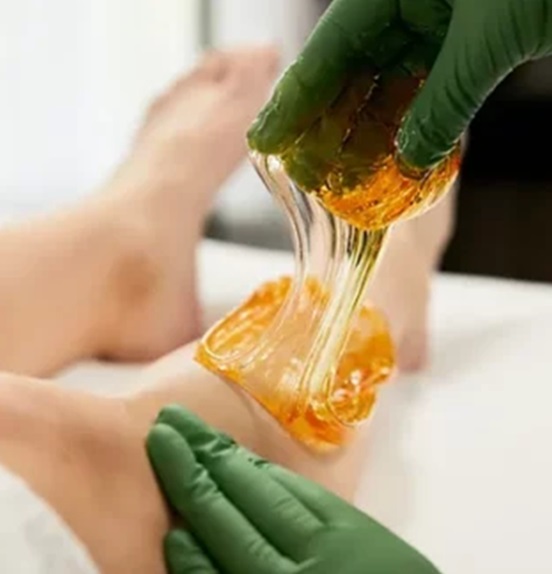Gov. Laura Kelly on Friday vetoed a bill that could settle a legal dispute over the popular ancient Egyptian form of hair removal called sugaring.
The governor said that deregulating the technique, which can be used on minors, could lead to safety and sanitation problems.
“We have a responsibility to protect Kansans – and this deregulation would threaten the health and safety of Kansans – particularly our children,” Kelly said in a statement.
The bill stemmed from a lawsuit brought by a Hays woman who argued that state regulations requiring her to get a license to practice sugaring are unconstitutionally burdensome.
Bryn Green was represented in the lawsuit by the Kansas Justice Institute, which is part of the free-market-oriented Kansas Policy Institute.
KJI litigation director Sam MacRoberts said his client wants to start a sugaring business, but can’t because of the number of hours that are required to get a cosmetology license.
“There’s no need to require 1,500 hours of irrelevant schooling to learn how to perform sugaring,” MacRoberts said in testimony before a Senate committee.
“Sugaring takes maybe an hour to learn and how to – if you don’t know this – wash your hands before you do it,” he said.
The lawsuit says Green can’t practice sugaring unless she gets a license, which would require her to complete 1,000 or 1,500 hours of instruction in a cosmetology or an esthetician school.
After completing the program, Green would have to complete two exams, neither of which have anything to do with the sugaring technique, according to the lawsuit.
“We’re disappointed for our client, Bryn Green,” MacRoberts said in response to the veto.
“Kansans shouldn’t be forced to spend tens of thousands of dollars and almost a year of schooling to get an occupational license for something that is already safe,” he said.
“At the same time, we’re confident in our legal arguments that Bryn — and all Kansans —have the right to earn an honest living, free from unreasonable government restrictions. We’ll continue to press ahead in court.”
Considered as an alternative to waxing, sugaring involves using a paste made with a mix of sugar, lemon juice and water. It’s applied to the skin in the direction of hair growth.
A cloth or fabric is applied to the paste. It’s then pealed off in the opposite direction of hair growth. The practice dates back thousands of years.
There was testimony warning that if the skin is not handled with proper care during the process, it could lead to tearing and infection.
Michelle Legg, a licensed cometologist from Olathe, testified against the bill.
“It scares me because the public trusts us, as professionals, to keep them safe,” Legg said in written testimony to a House committee.
“They trust that when they go into a facility for a service, that the service they are getting will be done by a provider that has completed the required training to provide the service and one that strictly adheres to proper infection control procedures.,” Legg said.
“They trust that the state is doing its best to keep them safe by ensuring that the provider has completed the required training hours, successfully tested, and is licensed.
“Should there be an issue with any of these, they trust that they can report it to the Board of Cosmetology, and they will investigate.”
The sugaring case is similar to one that the Kansas Justice Institute brought in 2020 on behalf of a Johnson County cosmetologist and her family over what they said were excessive regulations for eyebrow threading.
Jigisha Modi, her husband and mother-in-law filed a lawsuit alleging that state regulations for threading violated their state constitutional right to “conduct business free from unreasonable governmental interference.”
The lawsuit contended that the regulations kept Jigisha Modi from hiring her mother-in-law, who has 30 years of threading experience.
The lawsuit said 1,000 hours are required to become a licensed esthetician in Kansas, of which only 40 are devoted to hair removal.
The plaintiffs agreed to dismiss the lawsuit after the Legislature passed a law exempting the practice of eyebrow threading from the regulations of the state Cosmetology Board.
The bill allowed someone to practice eyebrow threading without being a certified cosmetologist.
















